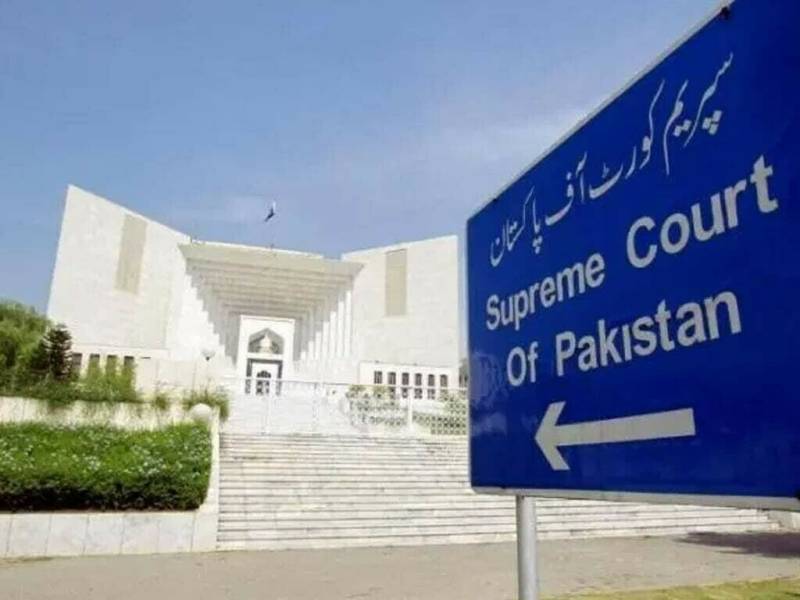Islamabad (Web Desk): The Supreme Court (SC) on Monday declared the military trial of civilians involved in May 9 riots as null and void.
The top court announced its short order after reserving the verdict following proceedings in the case earlier today on a set of petitions questioning the legitimacy of trying civilians in military courts.
A five-member special bench of the top court headed by Justice Ijazul Ahsan, and comprising Justice Munib Akhtar, Justice Yahya Afridi, Justice Sayyed Mazahar Ali Akbar Naqvi and Justice Ayesha Malik heard the petitions challenging the trial of civilians in military courts.
The court, by a majority of 4 to 1, has held that the trial of civilians under Section 2 D (i) (ii) of the Army Act is unconstitutional. The five-member bench unanimously declared that civilians would be tried under ordinary criminal laws.
“Without prejudice to the generality of the foregoing the trials of civilians and accused persons, being around 103 persons who were identified in the list provided to the Court by the learned Attorney General for Pakistan by way of CMA No.5327 of 2023 in Constitution Petition No.24 of 2023 and all other persons who are now or may at any time be similarly placed in relation to the events arising from and out of 9th and 10th May, 2023 shall be tried by Criminal Courts of competent jurisdiction established under the ordinary and / or special law of the land in relation to such offences of which they may stand accused,” read the written order.
Although the bench concluded that Section 2 D (i) (ii) was in contradiction with the Constitution, Justice Yahya Afridi reserved his decision.
Earlier today, the top court reserved the decision after Attorney General of Pakistan (AGP) Mansoor Usman Awan completed his arguments centred around the domain and scope of the military courts to try the civilians under the Army Act.
On Sunday, the federal government informed the SC that the military trials of civilians had already commenced.
The court was told that 102 individuals were arrested in connection with the May 9 and 10 incidents. They were assuring the court that trials in military courts would adhere to the ongoing SC case.
“Those found guilty would receive light sentences, while those who had served jail terms would be released,” the government said.
After the military trial, the convicts will be able to approach the relevant forum against the punishments as per law.
The persons taken into military custody were arrested under the Pakistan Army Act 1952 and the Official Secrets Act. The arrested persons are in custody for their involvement in the attack on Hamza Camp, Bannu Camp and Gujranwala Camp.
At the outset of the hearing today, AGP Awan argued in military courts fulfills all the requirements of criminal courts.
"The military trials of civilians had formally commenced," the AGP said adding that that the verdicts issued by the military courts would also detail the reasoning.
Awan said that a matter concerning an attack on a restricted area or building could also go to military courts.
At one point, Justice Ijazul Ahsan asked, “A constitutional amendment was required to try terrorists but not for civilians? I am trying to understand your argument.”
"If the accused had a “direct link” to the armed forces, then a constitutional amendment was not required," the AGP said, adding that the suspects would be tried under Section 2(1)(d)(ii) of the Official Secrets Act.
AGP Awan then noted that the court had raised a question about the framing of charges against the suspects. “All the requirements of a criminal case will be met in the trial under the Army Act,” he said.
"The trial of May 9 suspects would be similar to how it is conducted similar in criminal courts.
The reasoning will be given in the verdict and the evidence will be recorded," he said.
AGP Awan said that all the requirements for fair trial under Article 10-A of the Constitution would be fulfilled. He added that appeals against the verdict could also be filed in the high courts and subsequently the top court.
Raising a point during the hearing, Justice Ahsan asked about those who had been tried by military courts in the past. “Were the accused in 2015 civilians, foreigners or terrorists?” he asked.
AGP Awan replied that the suspect included both nationals and foreigners. He said that those tried in 2015 also included those who facilitated terrorists.
Justice Ayesha also asked the AGP how he would connect his arguments with Article 8(3) of the Constitution. “According to the law, a link to the armed forces in necessary (for trial in military courts),” she said.
Justice Ahsan remarked that the Constitution protected the fundamental rights of citizens.
It is pertinent to mention that on May 9, alleged workers and supporters of the Pakistan Tehreek-e-Insaf (PTI) vandalized and set fire to state and army properties and memorials in the wake of the party chief’s arrest by paramilitary troops from the premises of the Islamabad High Court (IHC).
Following the incidents of violence, the National Assembly had passed a resolution demanding that the rioters be tried under the Army Act.
A number of petitions were filed before the SC challenging the government’s decision to put May 9 suspects through military trials.
The petitioners included, Pakistan Tehreek-e-Insaf (PTI) chief Imran Khan, civil society members, senior politician Chaudhry Aitzaz Ahsan and former CJP Jawad S Khawaja.


